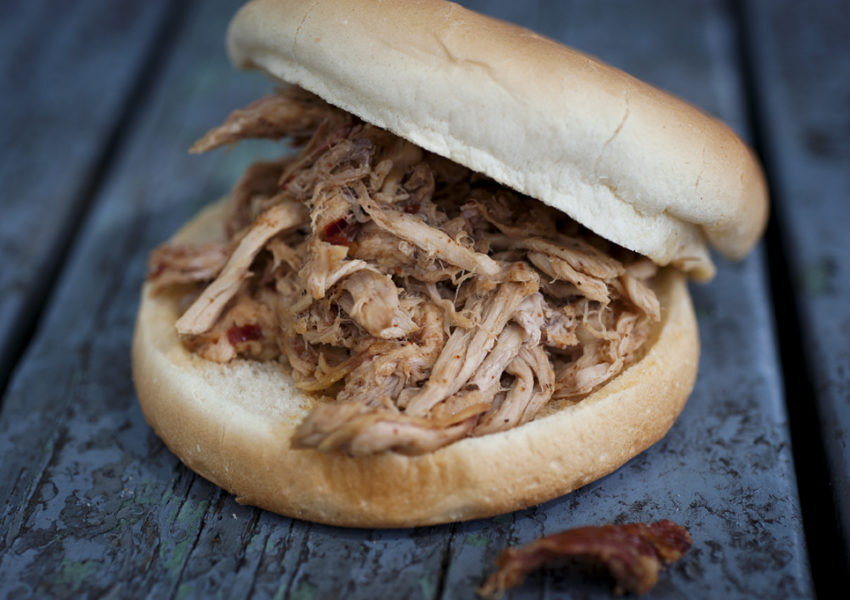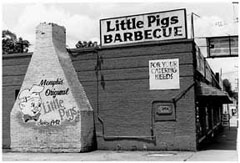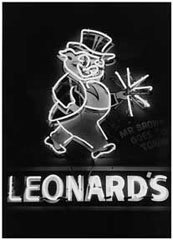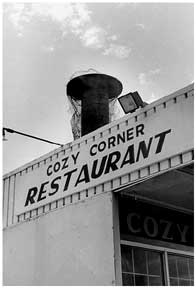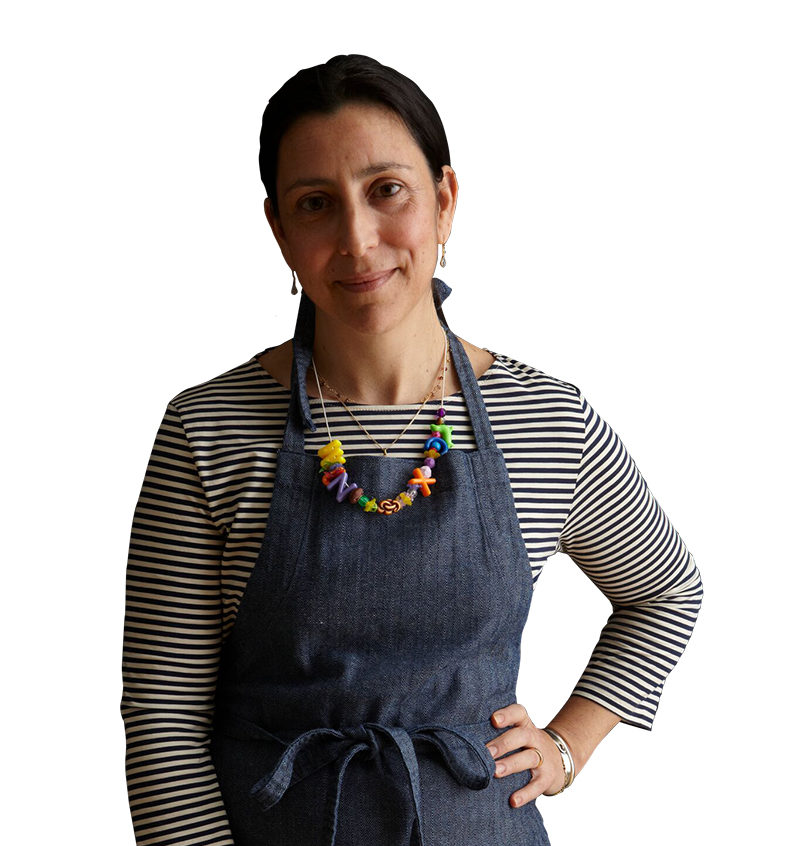< Back to Oral History project: Tennessee Barbecue Project
< Back to Oral History project: Rural Tennessee BBQ Project
< Back to Oral History project: Memphis Tennessee BBQ Project
ORAL HISTORY
Billy Frank Latham
April Grayson: Mr. Latham, could you state your name and the name of your business, please?
Billy Frank Latham: Billy Latham, and the name of the business is Bill’s Barbeque.
And could you tell me when and where you were born?
Well, I was born right here in Chester County. I’ve been here all my life. I’m 63, lived out of state one year.
And can you tell me the history of your business? How did you get started in the barbeque business?
Well, I was a saw miller and a logger, and I just wanted to retire out of it, and this place was available. I’ve been here nearly three years.
Three years. And who was the previous owner of the business?
It belonged to Harold Thomas, and he had hurt a hand and closed it up. It had been closed about a year and a half whenever I took over.
About how long—do you know how long it had been in business before he closed it?
Uh, about 17 or 18 years.
Ok. So there’s been a barbeque business in this location more or less for over 20 years?
Right.
Who taught you the craft of barbequing?
Um, kind of myself, just doing it at home. We used to have a big barbeque on Memorial Day, and we’d barbeque our own hog. And when I come in here, I bought what you call the barbeque smokers. It’s not an open pit. It’s actually better for you, cooking your hog at the exact same temperature all the time, and it’s got hickory smokers on it. And you use hickory wood to smoke it with.
And you just put the wood in the pre-built burner, the burner? How does it work exactly?
It’s got four units for the wood to go in, and they come on at different times as it’s cooking. It don’t take much wood. It takes a little stick about one-inch square, about two foot long, in each unit on it.
That, you get too much smoke if you’re not careful.
So, do you serve whole hog?
Yeah, it’s whole hog. I do lots of shoulders for people that want just a shoulder. I cook probably a lot of weeks as many as eight or ten shoulders for different ones that just wants a shoulder.
So what, about how long do you cook it on the cooker you use?
That’s the good part about this cooker. You can set it to where you can cook it slow at a certain temperature on it, where it’s really tender. The longer you cook it, the more tender it gets.
And about how long do you cook yours?
I cook—kind of depends on the size of the hog, but most times about 18 to 22 hours.
Ok. And about how big is the average hog when it starts?
I use, on foot, anywhere from a 250- to a 325-pound hog.
Ok. Where do you get your hogs from?
There’s a slaughterhouse in Lexington, which is 25 miles, more or less north of us here. And they come from—there’s a man got a hog farm at Decaturville, which is about the same distance from here. And he’s got what—he’s got his hogs fixed up to kindly be a real good barbeque hog, not a lot of fat on ‘em.
And is the slaughterhouse Hays?
That’s right, Hays Slaughterhouse.
We’ve heard that one. What are the type of dishes that you serve here at this restaurant?
Well, we start out on Monday with just barbeque. We’re open everyday. And Tuesday, we serve a plate lunch of some sort, vegetable plate that we fix. And then on Wednesday, we cook homemade stew. And Thursday, Friday, and Saturday, we add chickens and ribs. And Sunday we just have barbeque. But we have the barbeque everyday, I mean.
 Ok. And about how many hogs do you cook a week then?
Ok. And about how many hogs do you cook a week then?
It depends on what kind of holidays you got going forth. I use, most weeks, probably about six. But then you see it goes, holidays you gotta add to it.
So do you have—what do you think your specialty here is?
Well, it’d be the pork, would be the main specialty.
The sandwich, would it be the sandwich, or how do you serve it?
Yeah, there’s lots of pounds that go out, but through the week, it’s mostly people coming in and eating sandwiches or barbeque plates. Of course, then Thursday and Friday the chicken and rib plates go with it. But on the weekend, it goes out mostly in the pounds.
What kind of sides do you serve here as well?
Baked beans, potato salad, and slaw. And fried pies.
What kind of fried pies?
We make an apple, and a peach, and a chocolate.
Ooh, wow. I’ve never had chocolate fried pie. So do you serve slaw on your sandwich?
If you want it.
Ok. And is it red slaw or white slaw?
White.
And what about your sauce?
It’s a sauce that we make ourself. ‘Course that, you got your secrets and stuff like that. (Laughs)
So do you do hot and mild?
Got a hot and a mild and an extra hot.
Oh, ok. And you make all of those?
Um-hmm, yeah, we make all our sauce.
Do people tend to ask for sauce? Or are there some people who don’t like sauce?
There’s not but very few that don’t want it. We fixed one sandwich today that didn’t want no sauce on it.
Have you changed anything about your cooking process or your recipes since you started the business?
Well, you refine ‘em a little as you go along, just change ‘em a little, see if it changes the taste of it. So far, everything is panning our pretty good the way we’re doing it. Our chickens and ribs, we’ve got a pretty good crowd coming for those.
How do you see your restaurant fitting into the whole tradition of barbeque in this area?
It’s probably, it’s good average on it anyway.
What’s your clientele like? About how many people do you serve in the week? Is it normally regulars, or how does it work that way?
Well you have, I’ll say, at least 75 percent is what you consider as regulars, and then you got lots of people that just comes in. ‘Course, most of ‘em comes back, if they’re close enough to come back in.
Do you ever get people from far off that drop by just to have—
Oh yeah, we’ve got people that comes in for visits that used to live here, taking barbeque back to Texas, North Carolina, just long ways off, Illinois, lot of different places.
What do you think, what do you think makes your style of barbeque distinctive in this area?
You know, that’s hard to say. I could go anywhere in the world, cook barbeque just like I do here, if you’ve got the hickory wood. I mean, it’d be no way that it’d be different. But you go as much as just across the river into Arkansas, and barbeque is different.
I don’t really know, whether they use something else to cook it with or what it is.
Ok. Have you been in this location the whole time that you were in business, in this particular building?
Yeah, it’s, we moved in here, been almost three years now that we come in.
Now do you have a lot of sit-down diners or do most people take it out?
Well, right through dinnertime, we have quite a few that comes in and eats. ‘Course, that’s your local workers.
So do you think the atmosphere of the restaurant is important, or is it just sort of a place for people to sit down if they want to?
It’s probably about half and half on it. Most of our people that comes in, sits down and eat, don’t have but 30 minutes to an hour to have their dinner. They come through and, ‘course it don’t take us long to fix it up for ‘em.
Ok. How do you see the future of your business? Do you plan to do this for a lot longer? Do you plan to turn it over to someone else someday?
Well, I hope I can turn it over to a grandson, when I get ready to retire anyway. Which probably won’t be too long—I’m 63.
Ok. What’s your daily schedule like? Could you take me through a typical day?
Well, I come in here about a little after 6:00 in the morning, and I usually start out mopping floors. Get everything cleaned up before anyone has time to come in. Then make my pies. Kindly a major cleaning here and there. ‘Course my meat’s cooking through the night. See, that’s a good thing about these machines, you don’t have to sit up with it at night. And it keeps the temperature of it exactly the same, from the time it gets it built up until it gets done.
Do you and your wife come in at the same time?
No, I come in, and she does a little housework before she comes in. It’s after dark before we get home.
So you make all your pies yourself?
Yeah, um-hmm, we do all our pies. She makes a chocolate-oatmeal cookie, and they really go good.
So do you have time for anything else in your life, or is your life pretty much—
This is it!
This is your life. So it seems like it’s pretty dedicated and pretty difficult at times.
Well it is, but it’s not hard work. If you know of anybody that runs sawmills and so forth, you know what I’mthis is, this is easy work than what it is.
So where do you get the wood that you do use on your cookers? Is it from the sawmills?
Yeah, it comes from a mill up [Highway] 100…. They’ve got a hickory mill up there.
But you must not require very much wood.
It don’t.
 Ok. Do you ever participate in barbeque contests?
Ok. Do you ever participate in barbeque contests?
Not yet. I’ve been asked to come to Memphis, but that’s too much work, for an old man like me.
So it’s not really that big of an interest of yours?
No, uh-uh. I may have to quit in just a minute and help her out.
We’re getting close to the end, too. What is your—do you have a particular philosophy about barbeque or anything like that?
No, just cook it slow. Season it up right. And people will eat it.
Do you ever eat at any of the other barbeque places around here to compare how theirs tastes?
Not, not lately. I’ve got a daughter and her husband that runs one out 100, that’s seven miles from here.
What’s the name of that one?
Joyner’s Jack’s Creek Barbeque.
Oh, ok. We’re going to head and talk to them, too.
Ok. That’s our daughter out there.
Did they get started after you did?
No, they’ve been there probably five or six years.
Well, I appreciate you talking to me, and I’ll let you get back to your customers now. I appreciate it very much.
Well, glad to do it. That’s exposure.
It is, it is. Well, thank you very much.
—–
[Back in the kitchen]So this one has been on how long?
It’s been on about 22 hours.
Ok.
It is done. I turned it down—see this is your temperature gauge and so forth—I turned it down to just keep the temperature of it above 140 degrees, is all you got to do on this.
So that pig was—do you remember how much it weighed when you started?
This was about a 250 pounds.
And about how much meat can you get off that? How many pounds of meat?
I’ll get off of this whole hog, I’ll get about 75 to 80 pounds of meat.
Ok.
Joe York: What do y’all do with all that fat? [Points to a bucket that catches the dripping grease.]
You talking about this?
JY: Um-hmm.
They’s a guy that comes and picks that up. They make dog food and cat food out of it.
With the fat. About how many pounds of fat is that, do you think?
That come out of that hog last night and today.
JY: One hog and that’s–what size is that [bucket]? About a number five?
I don’t honestly know.
About half that washtub.
Um-hmm. But I clean my cookers every week.
And this hog you’ll use tomorrow probably, or it’ll last you a couple days?
Well, I’ve got a few big orders to pull this afternoon, and I’ll use about at least half of that this afternoon.
Ok.
But you see the good part about this cooker is, I can leave it covered up like that, and the temperature about like it is now, and it’ll be just as moist tomorrow. It’s still got the grease in it. It’ll be like that tomorrow. You can’t hardly do that on an open pit.





